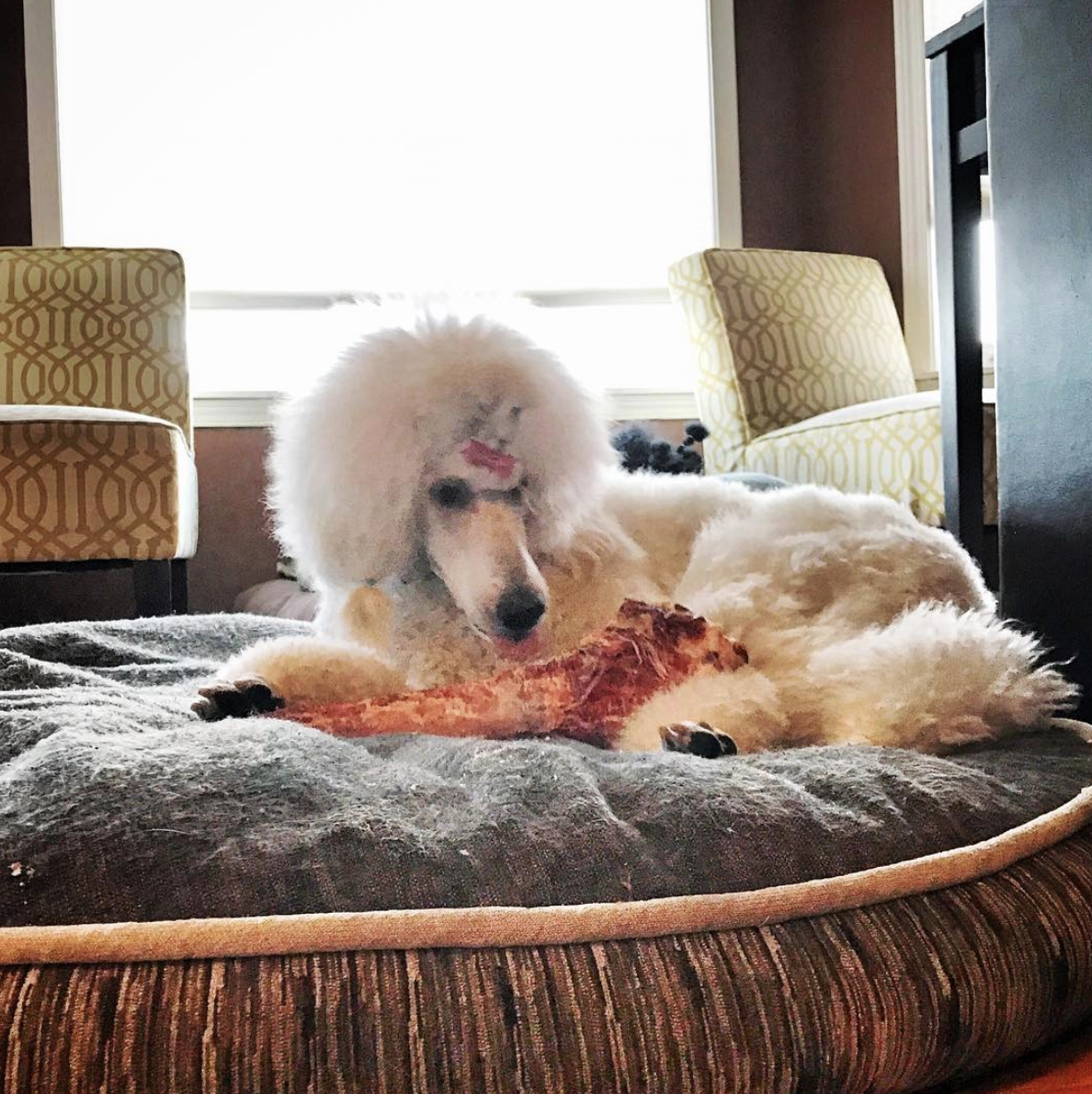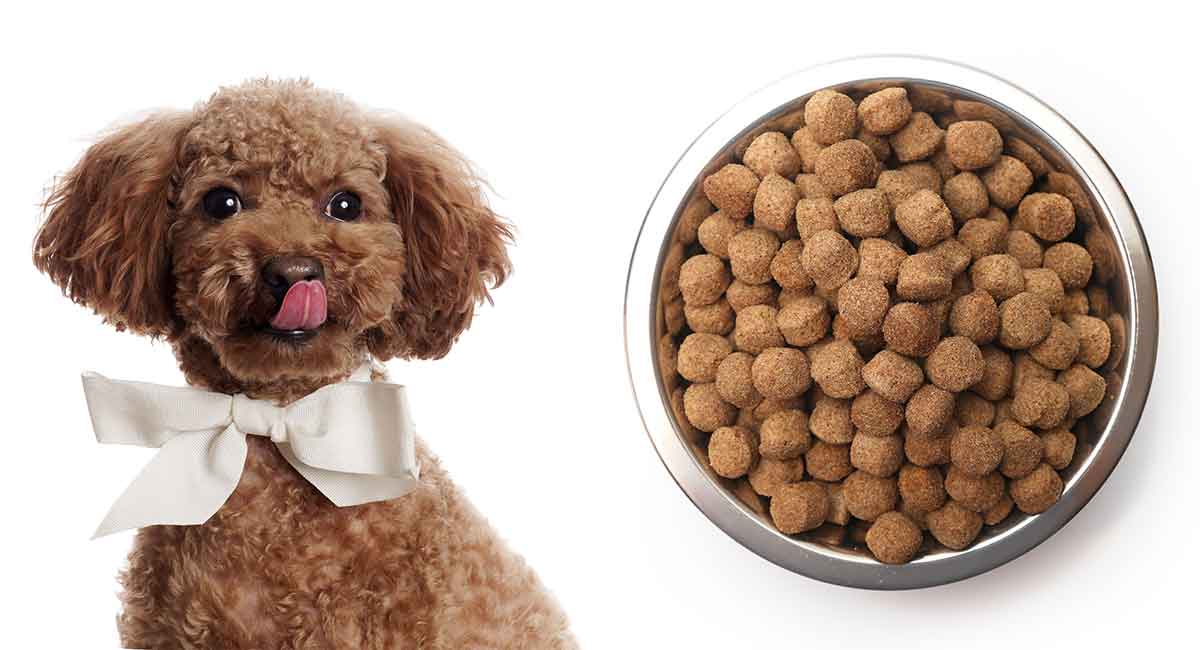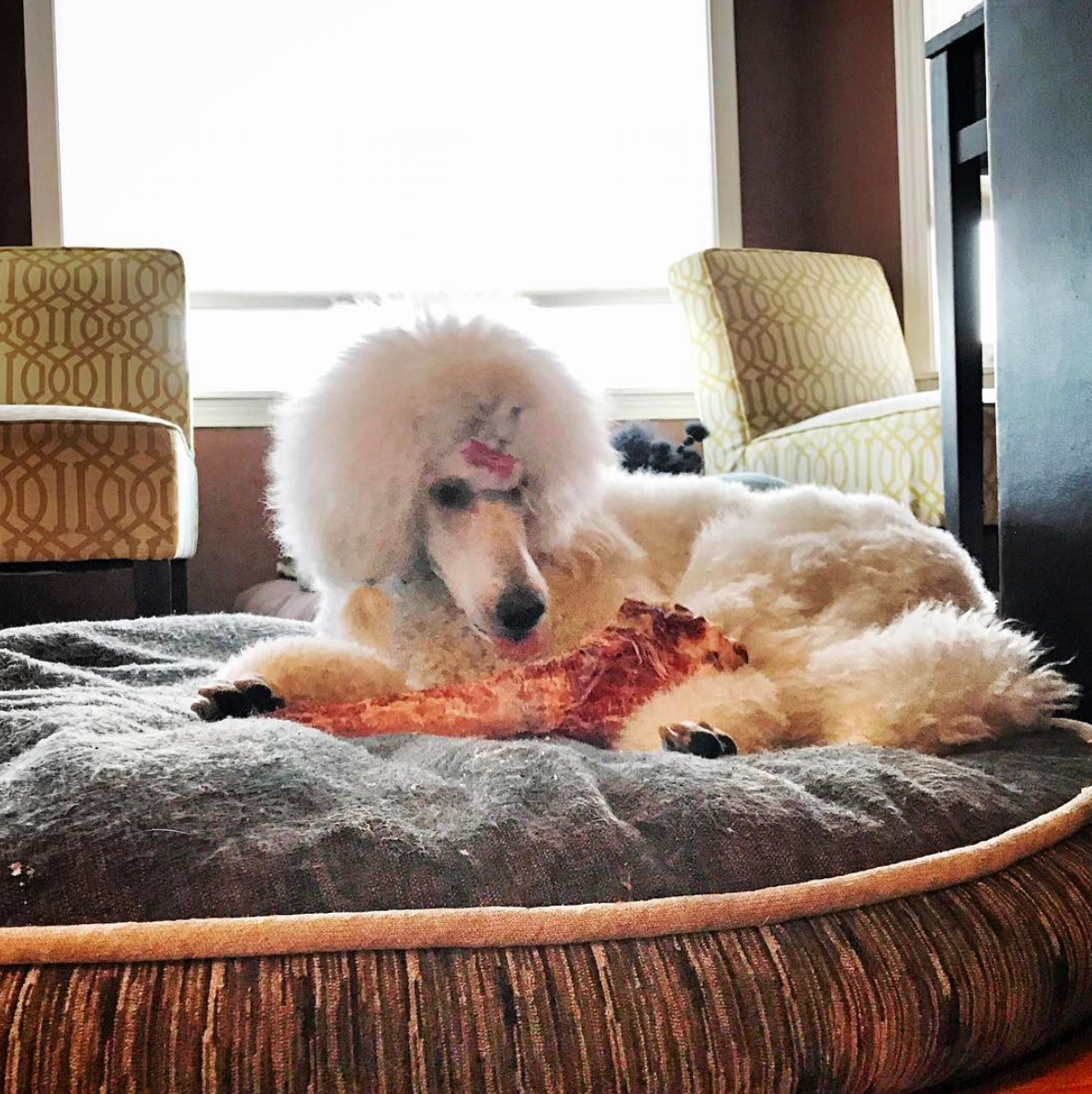Poodles are known for their elegant appearance and playful personalities, but have you ever wondered why they have such a hearty appetite? These intelligent and energetic dogs have specific dietary needs that fuel their active lifestyles and maintain their luxurious coats. Understanding why a poodle eats is essential for their overall health and well-being.
Poodles have a history of being working dogs, originally bred for retrieving waterfowl in Germany. Their high energy levels and athleticism require a balanced and nutritious diet to support their active lifestyles. With their dense and curly coats, poodles require regular grooming and a diet rich in quality proteins, healthy fats, and essential vitamins and minerals. This ensures the maintenance of their coat’s health and shine. Additionally, poodles are prone to certain health issues, such as food allergies or sensitivities, which may necessitate specific dietary restrictions or nutritional supplements. Providing the right food for a poodle is crucial for their overall health and longevity.
Poodles eat to maintain their energy levels and overall health. They require a balanced diet that includes protein, carbohydrates, fats, vitamins, and minerals. Proper nutrition is important for their growth, muscle development, and immune system function. Poodles also enjoy the act of eating and it provides mental stimulation. Feeding them at regular intervals and monitoring portion sizes is essential to prevent overeating or obesity. Additionally, poodles should always have access to fresh water to stay hydrated.

The Poodle’s Appetite: Exploring Why Poodles Love to Eat
Poodles, known for their elegant appearance and playful nature, are also known for their hearty appetites. From the standard poodle to the miniature and toy variations, these dogs have a reputation for being enthusiastic eaters. Have you ever wondered why poodles eat so much? In this article, we will explore the reasons behind their voracious appetite and delve into the factors that can influence their eating habits.
Understanding why poodles eat so much begins with their natural instincts as canines.
When poodles were originally bred, they were trained to be hunting dogs. This means that their ancestors relied on their ability to find and seize prey in order to survive. They have a strong prey drive and an instinct to eat whenever food is available. This primal instinct is still deeply ingrained in their DNA, explaining their voracious appetite.
Further contributing to their hearty eating habits is their high energy level. Poodles are active and intelligent dogs that require regular exercise and mental stimulation. Their physical activity level can often lead to increased hunger, as they burn calories and require fuel to sustain their energy levels.
Now that we understand the instinctual and energetic factors that contribute to a poodle’s love for food, let’s explore some specific reasons why poodles may have an increased appetite.
1. Metabolism and Nutritional Needs
One reason why poodles may eat a lot is due to their metabolism and nutritional needs. Poodles have a relatively high metabolic rate, which means they burn calories more quickly than some other dog breeds. In order to meet their energy requirements, they may need to consume larger quantities of food.
Additionally, poodles have specific nutritional needs that must be met in order for them to thrive. Quality dog food should provide the necessary nutrients, vitamins, and minerals that fuel their active lifestyle. If their diet is lacking in nutrition or if they are not receiving enough of a certain nutrient, they may engage in excessive eating to compensate for the deficiency.
It’s important to consult with a veterinarian to ensure that your poodle is receiving a balanced and nutritious diet that meets their individual needs.
2. Boredom and Emotional Eating
Just like humans, poodles can sometimes eat out of boredom or as a way to cope with emotions. If a poodle is not mentally and physically stimulated, they may turn to food as a source of entertainment or comfort.
This behavior can be particularly prevalent in poodles left alone for long periods of time or those that lack proper mental enrichment. By providing your poodle with regular exercise, interactive toys, and engaging activities, you can help prevent excessive eating due to boredom or emotional needs.
3. Environmental Factors
The environment in which a poodle lives can also play a role in their eating habits. Factors such as food availability, feeding schedule, and the presence of other pets can influence a poodle’s appetite.
If a poodle has constant access to food, they may be more prone to overeating. Similarly, irregular feeding schedules can disrupt their natural hunger cues and lead to overconsumption when food is available. It is important to establish a consistent feeding routine to prevent excessive eating.
The presence of other pets, particularly if they are competitive eaters, can also lead to a poodle eating more than necessary in order to keep up. Monitoring meal times and ensuring each pet has their own designated feeding area can help prevent overindulgence.
4. Health Issues
In some cases, a poodle’s increased appetite may be a sign of an underlying health issue. Certain medical conditions, such as hypothyroidism or diabetes, can cause excessive hunger in dogs. If you notice a sudden and significant increase in your poodle’s appetite accompanied by weight loss or other unusual symptoms, it is important to consult a veterinarian for a thorough examination and proper diagnosis.
Additionally, it is worth mentioning that certain medications or treatments can also affect a poodle’s appetite. If your poodle is on any medications, it is essential to discuss their potential side effects with your veterinarian.
5. Feeding Strategies
Now that we understand the reasons behind a poodle’s hearty appetite, it is important to discuss effective feeding strategies that can help maintain a healthy balance.
a) Portion Control
Divide your poodle’s daily food intake into two or three meals. This helps prevent overeating and gives them a chance to digest their food properly.
b) High-Quality Food
Choose a high-quality dog food that meets the nutritional needs of your poodle. Look for food that has real meat as the first ingredient and avoid artificial additives and fillers.
c) Treats in Moderation
While treats can be a great way to reward your poodle, it is important to give them in moderation. Excessive treats can contribute to weight gain and disrupt their overall balance. Opt for healthy, low-calorie treats or consider using praise and affection as rewards instead.
d) Enrichment and Exercise
Provide your poodle with regular mental and physical stimulation to keep them engaged and prevent boredom eating. This can include daily walks, playtime, puzzle toys, and training sessions.
| Energy levels | High |
| Appetite | Voracious |
| Reasons for eating | Instinct, energy requirements, boredom, emotional needs, environmental factors |
| Feeding strategies | Portion control, high-quality food, treats in moderation, enrichment and exercise |
Key Takeaways – Why does poodle eat?
- Poodles eat to sustain their energy levels and maintain their overall health.
- They have a high metabolism and need regular meals throughout the day.
- Eating also provides mental stimulation for poodles.
- It is important to feed poodles a balanced diet to meet their nutritional needs.
- Proper portion control and feeding schedule are essential for a poodle’s well-being.
Frequently Asked Questions
Poodles are known for their healthy appetites and love for food. In this section, we will answer some common questions about why poodles eat and what drives their dietary habits.
1. What are the nutritional needs of a poodle?
Poodles require a balanced and nutritious diet to maintain their overall health and well-being. A high-quality dog food that is specifically formulated for poodles is essential. It should contain a proper balance of proteins, carbohydrates, fats, vitamins, and minerals. Poodles also benefit from regular feeding schedules and portion control to prevent overeating or obesity.
Additionally, poodles have specific dietary requirements based on their size and age. Puppies require a diet that supports growth and development, while adult poodles may have different needs depending on their activity level or any health conditions they may have. Consulting with a veterinarian can help determine the best diet for your poodle.
2. Why do poodles eat grass?
It is common for poodles, and many other dogs, to eat grass on occasion. There are a few possible reasons for this behavior. Some dogs may eat grass to relieve stomach discomfort, as the grass can help induce vomiting. Others may enjoy the taste or texture of grass. It can be a natural instinct for dogs to explore and interact with their environment, which includes eating grass.
If your poodle frequently eats grass and exhibits signs of digestive issues, such as vomiting or diarrhea, it is important to consult with a veterinarian to rule out any underlying health problems.
3. Can poodles be picky eaters?
While poodles are typically known for their healthy appetites, some individuals may develop picky eating habits. There can be various reasons for this, including boredom with their food or a preference for certain flavors or textures. Environmental factors, such as stress or changes in routine, can also affect their eating behavior.
If your poodle becomes a picky eater, it is important to address the issue to ensure they are receiving proper nutrition. Trying different food options, using food puzzles to stimulate their mental engagement, and maintaining a consistent feeding schedule can help encourage them to eat.
4. Should poodles be allowed to free-feed?
Free-feeding, or leaving food available for the dog to eat at their own pace throughout the day, is not recommended for poodles or any dog breed. It can lead to overeating, weight gain, and digestive issues. Poodles, like most dogs, thrive on a regular feeding schedule with controlled portions.
By establishing set meal times, you can monitor your poodle’s food intake and ensure they are receiving the appropriate amount of nutrition. It also helps in preventing resource guarding behaviors and promotes a balanced lifestyle for your poodle.
5. What should I do if my poodle has a poor appetite?
If your poodle is experiencing a decreased appetite, it is essential to monitor their overall health and behavior. A loss of appetite can be a sign of an underlying health issue or discomfort. It is recommended to consult with a veterinarian to rule out any medical conditions.
In the meantime, you can try to entice your poodle’s appetite by offering different food options, ensuring their food is at an appropriate temperature, and providing a calm and stress-free eating environment. Avoid feeding human food or excessive treats, as it can interfere with their balanced diet.

How much and How often should you feed a Poodle dog? | Poodle Diet and Feeding |
So why does a poodle eat? Poodles, like all dogs, eat to nourish their bodies and provide the energy they need to live and thrive.
Eating is not just a biological necessity for poodles; it is also a source of enjoyment. Poodles have taste buds and can appreciate different flavors, making mealtime an exciting experience for them. Additionally, eating provides mental stimulation and can be a way for poodles to bond with their owners through training and treats.
